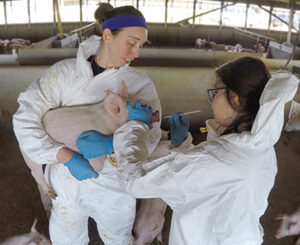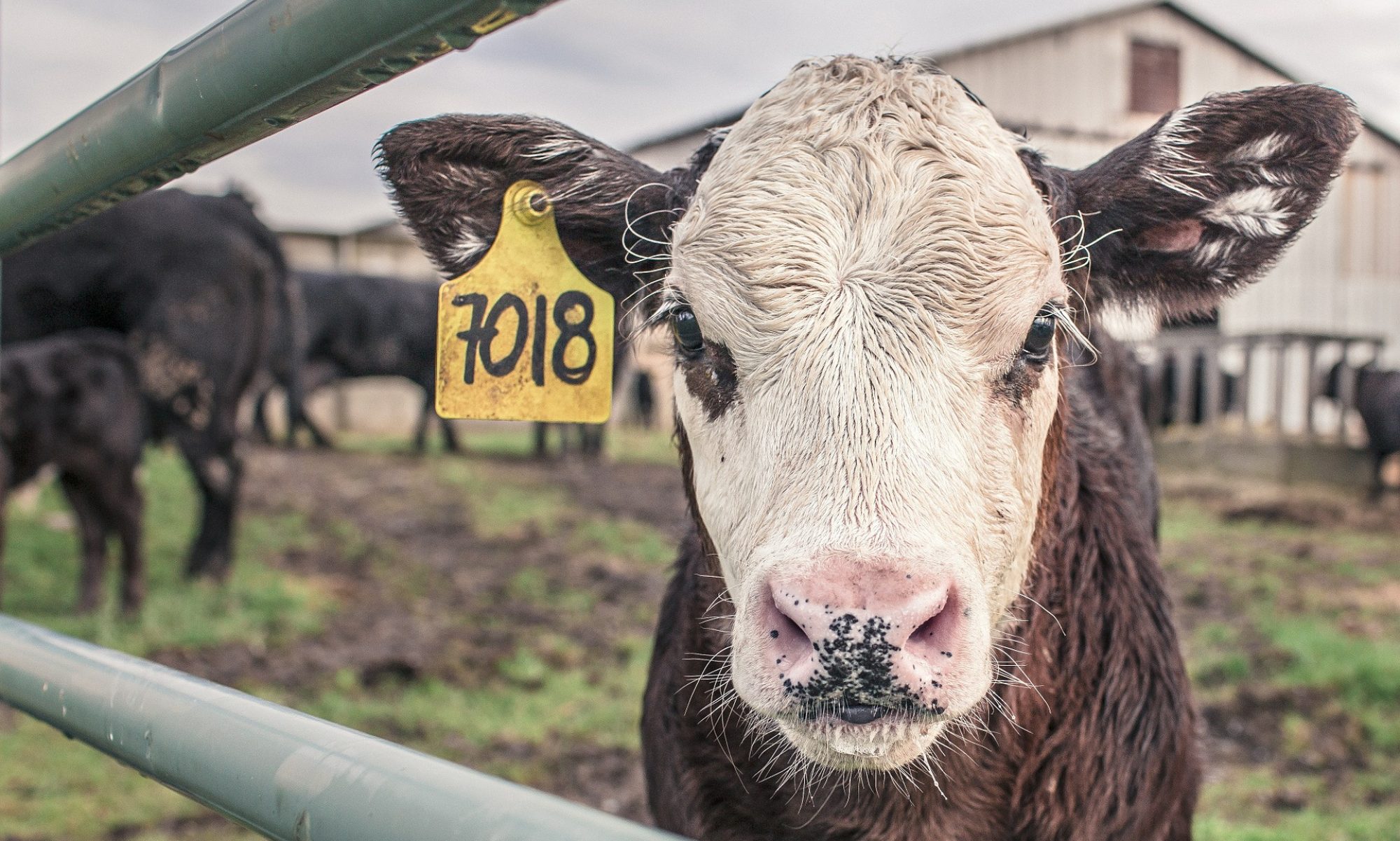
Undergraduate Student ExtraCurricular Activities
Coming Soon!
Undergraduate Student Courses
Iowa State University
Animal Welfare Judging and Assessment
VDPAM 365. Cr. 1. Repeatable. F.
Preparation for competition in the Intercollegiate Animal Welfare Judging Contest. Development of critical appraisal and oral communication skills in regard to animal welfare. Animal behavior, physiology, health and performance parameters, basic husbandry, housing and preventive care will be explored for select farmed, companion and exotic species. Optional field trips.
Contact: Dr. Suzanne Millman (smillman@iastate.edu)
Domestic Animal Behavior and Well-being
An S 336. Cr. 3. F. (Prereq: One course in physiology).
Concern about domesticated animal well-being has increased dramatically in the United States and globally. The issues involved are complex and there is widespread disagreement as to both the extent of human responsibilities toward animals and how those responsibilities should be carried out. Although human ethical attitudes are an important part of the dialogue about animal well-being, in this course we will not deal directly with human values, but will instead consider:
• How are animals coping?
• Who are animals?
• What can they experience?
• How can management practices and environments be modified to improve their well-being?
In-person only.
If a Graduate student wishes to take this they would need to cross list this a Graduate course in their major and complete additional work to enhance this to Graduate level.
Contact: Dr. Anna Johnson (johnsona@iastate.edu)
Livestock Handling, Safety and Welfare
An S 190. Cr. 2. F.S.SS. (Prereq: An S 101).
Understanding of animal perception in order to develop best care practices involved in handling of livestock species. Intensive development of skills associated with handling and moving healthy and compromised livestock in respect to human and animal welfare. Integration of scientific and theoretical knowledge of biosecurity and animal-human interactions as it relates to livestock handling and movement.
Animal Behavior
An S 537A
In 1973, the field of animal behavior was formally acknowledged when three ethologists, Konrad Lorenz, Niko Tinbergen and Karl von Frisch, were awarded the Nobel Prize. This prestigious award drew attention to ethology as a significant field of scientific research. Animal behavior is the scientific study of everything animals do, whether the animals are fish, amphibians, reptiles, birds, or mammals. It involves investigating the relationship of animals to their physical environment as well as to other organisms and includes topics such as how animals find and defend resources, avoid predators, choose mates and reproduce, and care for their young. People who study animal behavior are concerned with understanding the causes, functions, development, and evolution of behavior.
Distance education or virtual option only
Contact: Dr. Anna Johnson (johnsona@iastate.edu)
The Ohio State University
Animal Welfare and Behavior in Livestock Industries
ANIMSCI 440. Cr. 3. (Prereq: 3140 (310) or 3140H (310H), or permission of instructor).
The study of animal welfare and behavior and resulting influences on livestock production systems.
Contact: Jessica Pempek (pempek.4@osu.edu)
University of Wisconsin-River Falls
Animal Welfare
ANSC 115. 3 credits, F/Sp/SS
This course examines the basic concepts of animal welfare and the ethical issues involving the use of animals in our society.
Distance education or virtual option
Contact Dr. Kurt Vogel (kurt.vogel@uwrf.edu)
Quantitative Animal Welfare Assessment
ANSC 415. 3 credits, F/Sp ( Pre-requisites: ANSC 115, ANSC 260, AND (CHEM 360 OR CHEM 361 OR AGBI 251), or instructor permission).
This course examines the behavioral and physiological principles underlying animal welfare assessment methods. Common animal welfare assessment methods and assays are conducted on food animal species.
Distance education or virtual delivery option.
Contact Dr. Kurt Vogel (kurt.vogel@uwrf.edu)
